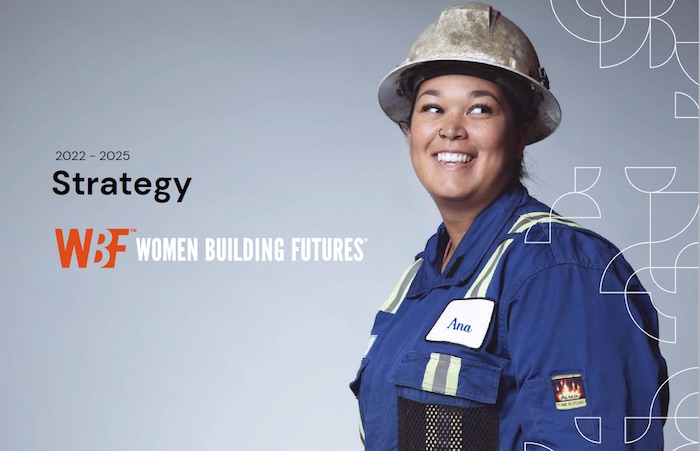Alberta
Province announces $10.7 million boost for women building careers in the skilled trades

Supporting women in the skilled trades
Alberta is providing $10.7 million to Women Building Futures to support women looking to build a career in the skilled trades.
Through Budget 2023, Alberta’s government is investing in women and empowering them to build rewarding careers. Over the next three years, $10.7 million will support Women Building Futures in their work while ensuring employers have the talent they need to grow their businesses.
Women Building Futures is a non-profit organization that helps unemployed and underemployed women explore a future in the skilled trades, where they can gain paid, on-the-job experience and build a career. Through employment training, support services, readiness workshops, affordable housing and more, the organization connects women to employers while they develop job-ready skills.
“On International Women’s Day we celebrate the incredible potential of women’s economic empowerment. By supporting Women Building Futures, Alberta is helping women gain job-ready skills to build rewarding careers in the skilled trades while ensuring Alberta’s prosperity.”
“More women are joining the skilled trades each year and I’m so excited to see that. Women Building Futures does such important work to prepare and support women looking at skilled trade careers and I’m thrilled that our government is supporting their work. This is great news for women, for families, for businesses, and for Alberta as a whole.”
Increasing opportunities for skilled labour
As Alberta’s economy remains strong and continues to grow, it’s important the province’s skilled labour supply grows with it. Partnering with Women Building Futures to increase the number of women in the skilled trades offers new opportunities for well-paying, high-demand work while providing industry with access to crucial talent.
About 5,700 women apprentices were registered in Alberta last year, a 20 per cent increase from 2021. While the number of women continues to increase, there is more work to be done to alleviate the gender gap in the skilled trades.
“Stable operational funding for Women Building Futures during the next three years gives us the flexibility to keep our focus on helping unemployed and underemployed women remove barriers to successful careers in the trades. This is good for women and good for Alberta.”
“Women Building Futures provided me a stable foundation to start my journey as a heavy equipment technician. The program I had the chance to attend provided me with knowledge, confidence and tools to be successful. They have also kept in touch with me every step of the way and have had my success as their priority.”
“Being selected as an Employer of Choice is a great acknowledgement of the success of our partnership with Women Building Futures. This work has been so meaningful to all involved, not only because it’s had such a positive impact on our projects, but because we have seen first-hand the individual transformations of candidates and the ripple effect that has on economic security and well-being of these women and their communities.”
“We are proud that our Graham projects employ women in trades at a rate over twice the national average, and that women have the same opportunities as anyone to build a career in the construction industry. As a WBF Employer of Choice, our partnership with Women Building Futures has helped us to attract and retain a pipeline of excellent talent, improve collaboration and communication on our projects, and deliver better outcomes for our clients. We believe that embracing diversity and maintaining a culture that values and respects all individuals is not only the right thing to do but also the key to continued success as we continue to develop a workforce that is representative of the communities we build and serve.”
Budget 2023 secures Alberta’s future by transforming the health-care system to meet people’s needs, supporting Albertans with the high cost of living, keeping our communities safe and driving the economy with more jobs, quality education and continued diversification.
Quick facts
- Women Building Futures is a non-profit organization with 18 employment programs in six Alberta communities.
- Since 1998, more than 2,700 women have graduated from Women Building Futures training programs.
Alberta
They never wanted a pipeline! – Deputy Conservative Leader Melissa Lantsman

From Melissa Lantsman
Turns out the anti-development wing of the Liberal Party never stopped running the show.
Today, we’ll see if the Liberals vote for the pipeline they just finished bragging about.
Spoiler: they won’t. Because with the Liberals, the announcements are real, but the results never are.
Alberta
Premier Smith: Canadians support agreement between Alberta and Ottawa and the major economic opportunities it could unlock for the benefit of all

From Energy Now
By Premier Danielle Smith
Get the Latest Canadian Focused Energy News Delivered to You! It’s FREE: Quick Sign-Up Here
If Canada wants to lead global energy security efforts, build out sovereign AI infrastructure, increase funding to social programs and national defence and expand trade to new markets, we must unleash the full potential of our vast natural resources and embrace our role as a global energy superpower.
The Alberta-Ottawa Energy agreement is the first step in accomplishing all of these critical objectives.
Recent polling shows that a majority of Canadians are supportive of this agreement and the major economic opportunities it could unlock for the benefit of all Canadians.
As a nation we must embrace two important realities: First, global demand for oil is increasing and second, Canada needs to generate more revenue to address its fiscal challenges.
Nations around the world — including Korea, Japan, India, Taiwan and China in Asia as well as various European nations — continue to ask for Canadian energy. We are perfectly positioned to meet those needs and lead global energy security efforts.
Our heavy oil is not only abundant, it’s responsibly developed, geopolitically stable and backed by decades of proven supply.
If we want to pay down our debt, increase funding to social programs and meet our NATO defence spending commitments, then we need to generate more revenue. And the best way to do so is to leverage our vast natural resources.
At today’s prices, Alberta’s proven oil and gas reserves represent trillions in value.
It’s not just a number; it’s a generational opportunity for Alberta and Canada to secure prosperity and invest in the future of our communities. But to unlock the full potential of this resource, we need the infrastructure to match our ambition.
There is one nation-building project that stands above all others in its ability to deliver economic benefits to Canada — a new bitumen pipeline to Asian markets.
The energy agreement signed on Nov. 27 includes a clear path to the construction of a one-million-plus barrel-per-day bitumen pipeline, with Indigenous co-ownership, that can ensure our province and country are no longer dependent on just one customer to buy our most valuable resource.
Indigenous co-ownership also provide millions in revenue to communities along the route of the project to the northwest coast, contributing toward long-lasting prosperity for their people.
The agreement also recognizes that we can increase oil and gas production while reducing our emissions.
The removal of the oil and gas emissions cap will allow our energy producers to grow and thrive again and the suspension of the federal net-zero power regulations in Alberta will open to doors to major AI data-centre investment.
It also means that Alberta will be a world leader in the development and implementation of emissions-reduction infrastructure — particularly in carbon capture utilization and storage.
The agreement will see Alberta work together with our federal partners and the Pathways companies to commence and complete the world’s largest carbon capture, utilization and storage infrastructure project.
This would make Alberta heavy oil the lowest intensity barrel on the market and displace millions of barrels of heavier-emitting fuels around the globe.
We’re sending a clear message to investors across the world: Alberta and Canada are leaders, not just in oil and gas, but in the innovation and technologies that are cutting per barrel emissions even as we ramp up production.
Where we are going — and where we intend to go with more frequency — is east, west, north and south, across oceans and around the globe. We have the energy other countries need, and will continue to need, for decades to come.
However, this agreement is just the first step in this journey. There is much hard work ahead of us. Trust must be built and earned in this partnership as we move through the next steps of this process.
But it’s very encouraging that Prime Minister Mark Carney has made it clear he is willing to work with Alberta’s government to accomplish our shared goal of making Canada an energy superpower.
That is something we have not seen from a Canadian prime minister in more than a decade.
Together, in good faith, Alberta and Ottawa have taken the first step towards making Canada a global energy superpower for benefit of all Canadians.
Danielle Smith is the Premier of Alberta
-

 COVID-191 day ago
COVID-191 day agoUniversity of Colorado will pay $10 million to staff, students for trying to force them to take COVID shots
-

 Bruce Dowbiggin1 day ago
Bruce Dowbiggin1 day agoIntegration Or Indignation: Whose Strategy Worked Best Against Trump?
-

 Focal Points2 days ago
Focal Points2 days agoCommon Vaccines Linked to 38-50% Increased Risk of Dementia and Alzheimer’s
-

 espionage1 day ago
espionage1 day agoWestern Campuses Help Build China’s Digital Dragnet With U.S. Tax Funds, Study Warns
-

 Bruce Dowbiggin1 day ago
Bruce Dowbiggin1 day agoWayne Gretzky’s Terrible, Awful Week.. And Soccer/ Football.
-

 Opinion2 days ago
Opinion2 days agoThe day the ‘King of rock ‘n’ roll saved the Arizona memorial
-

 Agriculture1 day ago
Agriculture1 day agoCanada’s air quality among the best in the world
-

 Health1 day ago
Health1 day agoCDC Vaccine Panel Votes to End Universal Hep B Vaccine for Newborns






